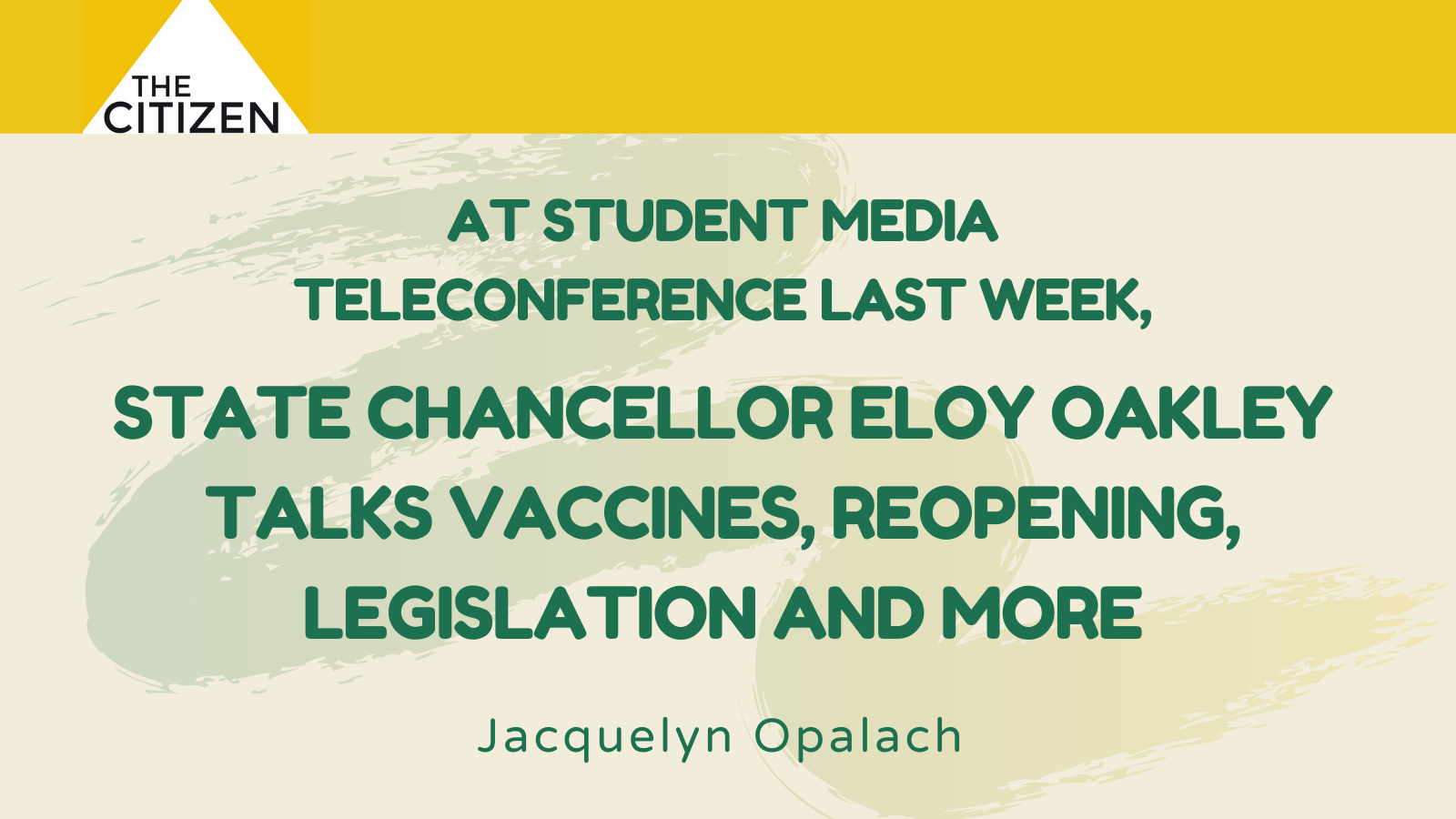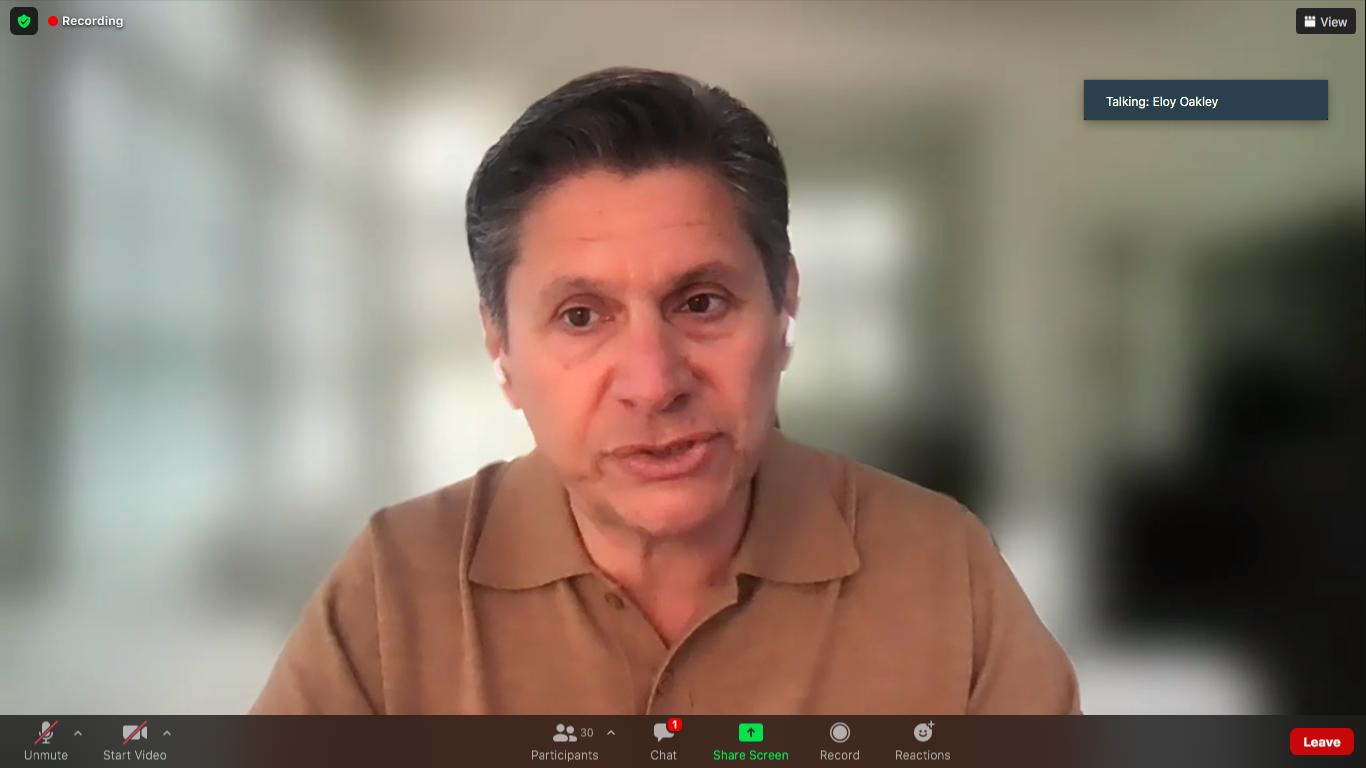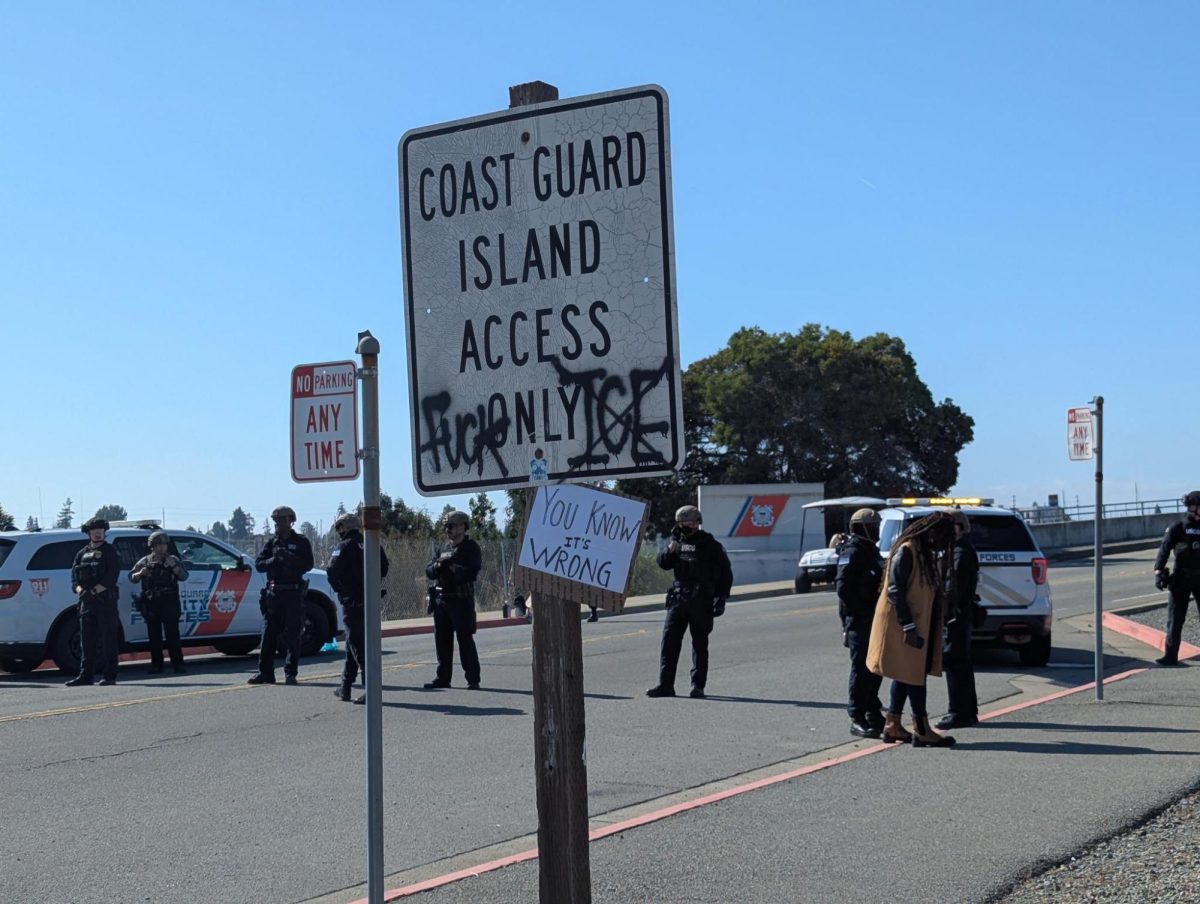
Messages regarding the importance of COVID vaccinations, reopening campuses, and pending legislation were California Community College Chancellor Eloy Ortiz Oakley’s primary focus at a student media teleconference on Thursday, May 6.
How ‘bout vaccinations?
The state chancellor’s office is strongly encouraging all students and staff to get vaccinated as soon as possible. “We want students, we want faculty and we want staff to be in a position where they protect themselves and their community by getting vaccinated,” Oakley said. “So I am strongly encouraging our students — all of our students — to get vaccinated. This is incredibly important to a reopening this fall.”
On that note, Oakley is pushing colleges to “plan for reopening in the fall,” with the recognition that opening campuses might look different for different community college districts. Oakley has signaled caution in regard to opening campuses, and noted that for many districts, instruction will likely be hybrid in the fall. (Read more about this topic here.)
Anyone who is 16 or older can make a vaccination appointment here.
Legislation Oakley likes
Oakley also brought attention to Assembly Bill 1456, or the Cal Grant Reform Act, which would widen availability and loosen restrictions for financial aid. In a nutshell, this legislation would change eligibility for Cal Grants by doing away with current age and GPA verification requirements. The bill would also push the application deadline to September 2, 2021.
“This is obviously important news for students who are lower income, who are older, who are parents, because they are more likely to benefit from this source of financial aid. It also makes more students of color — who we know are disproportionately impacted by financial aid policies and programs — [by giving] them greater eligibility for the Cal Grant program,” Oakley said.
“Overall, the changes will mean the total number of eligible students that can receive financial aid under the Cal Grant will increase by nearly 300 percent. That’s a real increase.”
Oakley has taken a supportive position on the bill, and encouraged folks interested in learning more to visit truecollegecost.com, a website created by his office.
Oakley also happily addressed President Joe Biden’s American Families Plan. “It’s sort of nice to be able to say there’s good news coming from D.C.,” he said. “We’re thrilled that the Biden administration is looking to invest in families like yours.”
Paid for by tax hikes on America’s wealthiest and Internal Revenue Service changes, the American Families Plan would allocate huge funds toward offering two years of free community college to all Americans (including dreamers), increasing the maximum Pell Grant award, and investing in retention efforts at colleges with high numbers of low income students.
“We want to make sure that students and faculty and staff are aware of this because we want to make sure that we reach out to every representative in Congress and make sure that they know how important this is to our students and their families,” Oakley said.

What about federal stimulus?
The Citizen asked Oakley for an update regarding federal and state stimulus funds and how they are distributed. Oakley reviewed that federal stimulus dollars go directly to colleges, and that 50 percent of those funds go directly to student aid.
“Those resources are going directly to students for emergency support. Other resources, along with those, are being used to offset the cost of preparing to open, or making changes in the classrooms, or paying for some of the losses that some of our colleges have had to make, as well as helping to pay off student debts that may have accumulated over the last couple of years,” Oakley said.
State stimulus funding is distributed based on college size, and is meant to be used for supporting emergency needs, like food and mental health resources, among other things.
“The intent by the legislature and the governor were to, you know, provide these resources to colleges to re-engage with students that either dropped out of college during the pandemic, or didn’t come to our colleges in the first place out of high school,” Vice Chancellor for Communications Paul Feist said. “Ninety percent of that money has already been distributed to the colleges.”
Sanctuary Campuses
The Citizen also asked Mr. Oakley to comment on sanctuary campuses, and whether administrators and staff of sanctuary campuses who might disagree with those protections should have the right to cooperate with authorities in the event of an ICE raid on undocumented community college students.
Oakley noted that in regards to protecting undocumented students, things look very different today than they did a year ago. “We have an administration in Washington D.C., and a Secretary of Homeland Security, that has publicly made clear that he is not interested in coming after our students, our dreamers,” Oakley said. “We don’t have to be as vigilant as we were before.”
That said, Oakley made it clear that he will continue to encourage all districts to protect all students. “While I can’t speak to anybody’s individual motivations or, I mean they’re certainly as individuals, they have their rights to cooperate with authorities, but as far as the campuses are concerned, I would expect them to continue to protect the privacy of all of our students, particularly our undocumented students.”
And a little more
In other news, Chancellor Oakley would like to remind returning students to submit their FAFSA (Free Application for Federal Student Aid) by June 30, and encourage returning students to enroll in summer and fall classes as soon as possible.
“Particularly if [students’] economic circumstances have changed over the last semester or so, given everything that’s gone on the economy during the pandemic, many students may be eligible for financial aid,” Oakley said.
For information about the FAFSA, students can visit icanaffordcollege.com.

























